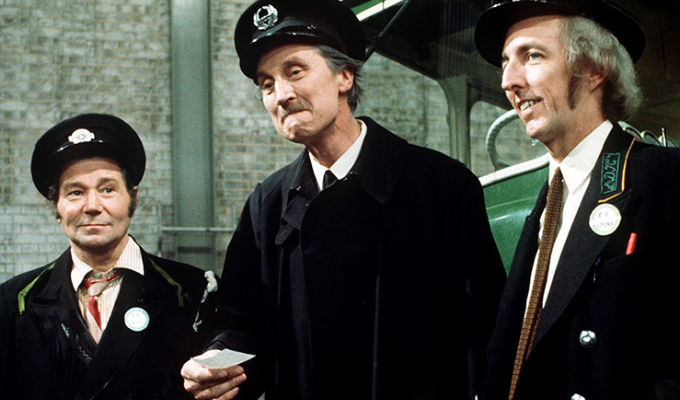
'Ofcom should give classic comedies a free pass'
Don't judge them by today's standards, says broadcaster
Reruns of classic TV comedies should not be held to the same standards of offensive language as new programmes, an archive broadcaster has said.
Jonathan Moore, co-founder of free-to-air channel Rewind TV, has urged regulator Ofcom to go easier on old shows such as On The Buses and The Benny Hill Show.
He suggested a ‘classic comedy’ exemption from its regulations in the same way old cars are excluded from many regulations.
Rewind TV, which launched last year, specialises in airing vintage UK and US television series and programmes, including Please Sir! and Don’t Drink The Water.
He told industry website C21Media: ‘Classic cars are exempt from road tax and MoT rules when they reach 40 because they are seen to be part of the nation’s history, and their preservation has cultural and historical significance. They also appeal to a niche audience, who understand and appreciate them as being from a different time.
‘In much the same way, classic comedy is certainly part of the nation’s history, providing an insight to societal changes as well as a window on a world long passed. Even more recent shows such as Drop the Dead Donkey and Whose Line Is It Anyway? are generally appreciated by an older audience, who understand the context in which they were recorded.’
‘We believe that shows more than 40 years old should be broadcast largely uncut – of course, we retain the right to edit content we consider particularly inappropriate – with a message explaining clearly that content that was deemed acceptable back then may not be acceptable now. Years of cuts can suffocate a show and that’s something we want to avoid.
‘Granting a "classic comedy" exemption by default would help protect iconic shows from extinction.’
When asked about the idea an Ofcom spokesman told Chortle: ‘We regularly conduct research on audiences attitudes as part of our broadcast standards work’ and pointed to recent research they conducted that considered attitudes to classic comedies.
That report stated: ‘If they felt the content was not obviously offensive to them, then participants were more likely to want to continue to access it. This was because they had previously enjoyed these programmes and felt nostalgic about them, justifying them as "of their time".
‘On the other hand, participants were less accepting of archive content which included language they viewed as clearly discriminatory, particularly if the offence was used as a joke device. This was linked to the perceived intentions of the clip. If it was considered to purposefully target vulnerable or minority groups, this was much less acceptable.’
Viewers who took part in the study were divided as to whether programmes should go out in their original format with an advance warning about contentious material, or where scenes should be cut.
Published: 24 Apr 2025






